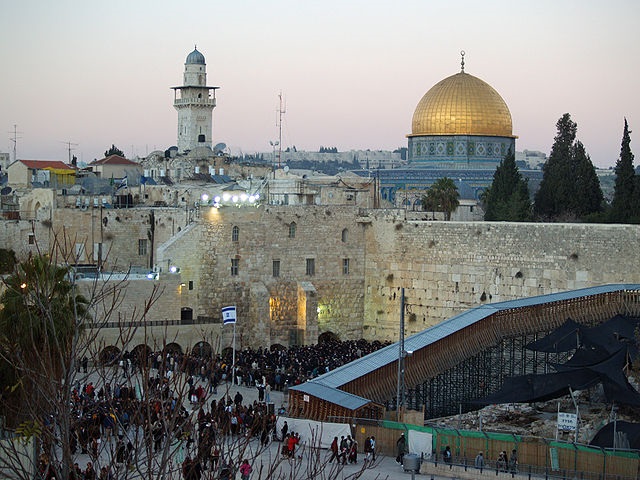Egalitarian prayer space at Western Wall challenged by Israeli Archaeological Council
The Archaeological Council of Israel has warned that a planned egalitarian prayer space at the Western Wall would cause major damage to the world heritage site.

The council announced its opposition to the planned extension of the prayer space to include a mixed gender area, warning it would cause "major damage" to the archaeological park next to the Western Wall, in an open letter to Prime Minister Benjamin Netanyahu on Monday.
The government decided in January to extend the prayer area for conservative, reformed and mixed-gender worship. This prayer space will be in the archaeological park along the Wall, south of the current prayer area.
"Recently a prayer and events area consisting of an additional 500 square meters has been established, as one can see when visiting the site; these stages cause great damage to the site's appearance, in the site's visiting path and the ability to explain the site to visitors – they should be removed as soon as possible," the council said in the letter.
"The current plans to add and multiply the amount of prayer stages will only cause more damage to the site."
The issue is that the archaeological park at the southern end of the Wall, which was established "for uncovering and displaying the ruins of Jerusalem's past", now extends "over less than 60 metres of the total length of the Western Wall".
"This is the only place you can see and can touch the remains of the destruction that befell the people of Israel, which is commemorated with the yearly fast on Tisha B'Av. The remains of this landslide have immense educational and historical value," professor Benjamin Mazar, who has excavated the land, said.
The letter from the council came two weeks after a hearing was held on the subject, where the hearing's head, Professor Roni Reich said: "This is a Jewish and world heritage site of primary importance. Preservation of the ruins is a prime archaeological, public, educational and cultural duty."
The decision to create a prayer space for mixed worship came after a year-long debate and was hailed as a historic landmark for Jewish pluralism and non-Orthodox movements in Israel.











